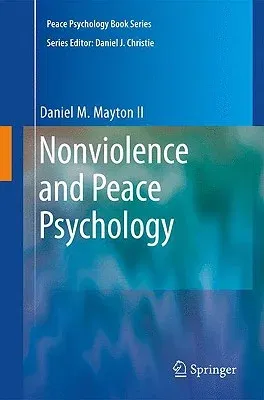Recent trends and events worldwide have increased public interest in
nonviolence, pacifism, and peace psychology as well as professional
interest across the social sciences. Nonviolence and Peace Psychology
assembles multiple perspectives to create a more comprehensive and
nuanced understanding of the concepts and phenomena of nonviolence than
is usually seen on the subject. Through this diverse
literature--spanning psychology, political science, religious studies,
anthropology, and sociology--peace psychologist Dan Mayton gives readers
the opportunity to view nonviolence as a body of principles, a system of
pragmatics, and a strategy for social change. This important volume:
- Draws critical distinctions between nonviolence, pacifism, and related
concepts.
- Classifies nonviolence in terms of its scope (intrapersonal,
interpersonal, societal, global) and pacifism according to political
and situational dimensions.
- Applies standard psychological concepts such as beliefs, motives,
dispositions, and values to define nonviolent actions and behaviors.
- Brings sociohistorical and cross-cultural context to peace psychology.
- Analyzes a century's worth of nonviolent social action, from the
pathbreaking work of Gandhi and King to the Courage to Refuse movement
within the Israeli armed forces.
- Reviews methodological and measurement issues in nonviolence research,
and suggests areas for future study.
Although more attention is traditionally devoted to violence and
aggression within the social sciences, Nonviolence and Peace
Psychology reveals a robust knowledge base and a framework for
peacebuilding work, granting peace psychologists, activists, and
mediators new possibilities for the transformative power of nonviolence.

